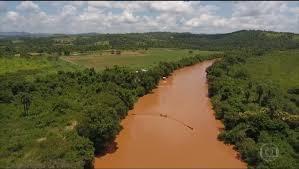I'm looking into options for soil testing that are more accessible but also reliable, and am curious about what folks out there have been using to test soils for heavy metals, PAH's, and other oil and gas related contaminants. Have you used colorimeters, spectometers, reagants or something else to characterize these in soils? Do you know of any extension offices, agencies or makers spaces offering cheap soil contaminant testing? Which guidelines do you use to compare your soil test results to in terms of contaminant limits?
I'll be at the Barnraising in Houston and hoping we can get together to explore soil testing options- what can we further develop to be more usable and give us better results? If you have experience with soil testing for contaminants, please be in touch and lets work on this together!

10 Comments
Dear DanielleS. I'm a software developer, retired but still active with code writing, developing analytics for natural resource management. We just had a major incident at the Brumadinho iron mining dam in State Minas Gerais Brazil, which might cause some of the worst environmental disasters, we've ever seen. I'm doing research how to create a basic monitoring device, possibly based on spectrophotometer to detect traces of contaminants, mainly the heavy metal elements in river water, or soil. Avoiding reagents would be great, as it helps to automate the measurement without need for human intervention, or expensive laboratory assistance. Not sure yet, if this will be possible, for now its just a line of thoughts and research. I'm happy to exchange ideas about this techniques, also for soil measurement, as there is growing market for such type of monitoring. Regards, Claude (Brazil)

Reply to this comment...
Log in to comment
I know it's expensive, but the quickest heavy metal monitor is to dry the soil and do X-Ray flourescence (XRF).
After that, there are many set chemical tests for heavy metals. How well they work on soil, I don't know.
Reply to this comment...
Log in to comment
Thanks @falbriard - I would love to exchange thoughts and brainstorm on this. I think its really important to keep developing these technologies. Will you be at the Barnraising? If not, lets chat!
Is this a question? Click here to post it to the Questions page.
Reply to this comment...
Log in to comment
@DanielleS I live and work at the Southern Coast in Brazil in a green forest belt known as Atlantic Rain forest. Traveling to Barnraising/TX would be nice, but for now its far too distant, maybe for next years meeting! Regarding the research on contaminants and its detection, I got some progress and its about the use of chemical reagents. I found one, named "Diphenylthiocarbazone (or Dithizone)" that is binding to Cu, Zn, Cd, Hg, Pb, Mn, Co, Ni and it gives color information at the visible spectrum. For more details and updates please check my latest posts.
Reply to this comment...
Log in to comment
XRF analyzers are expensive to purchase; however , most companies that sell them will also rent instruments. This is a great option for large projects only involving metals- using the XRF for screening purposes. The best methods and data (still) are to send off to a certified lab..
Reply to this comment...
Log in to comment
@falbriard @jjcreedon thank you for the info! Can you join us for a brainstorm about soil testing at the Upcoming OpenHour?
Date: Monday, April 1st Time: 6pm London / 1pm NYC / 12pm New Orleans
Soil testing through professional labs can be expensive. While there are more affordable options such as XRF and other field test kits, most are still out of community’s price range or aren’t widely available. DIY and open source soil testing methods and technology need further development.
Are you interested in low cost soil testing? Are you concerned about heavy metals, organic chemicals, or other soil contaminants? Have you explored colorimetry, reagents, spectrometry, microbial, or other approaches to analyzing soils?Come to share and brainstorm open-source, DIY methods for soil testing. We'll spend time discuss pathways forward for soil testing that are more accessible, and meet others working on this!
Or call in: +1 646 876 9923 US (New York), Meeting ID: 924 452 960 or Find your local number here.
Is this a question? Click here to post it to the Questions page.
Yes, agreed. I was just thinking about this yesterday. There most def is a cost barrier associated with soil testing. Thats why if a community group can collaborate with a local University lab, this would be the way to go. Yes, Im interested in the OpenHour
@eleanorwarner @gbathree @dbgrover - Think you might be interested in this upcoming OpenHour on soil testing as well!
www.publiclab.org/openhour
Reply to this comment...
Log in to comment
ps- so great that some of you can make it to the Open Hour on soil testing! We are going to harvest the soil testing options in a spreadsheet- please contribute info about the methods you use before the meeting: https://docs.google.com/spreadsheets/d/1dPla3jTr2D_FIBexqd_zKLYyyoA0PgTgH40Xy_3MtPY/edit?usp=sharing
Is this a question? Click here to post it to the Questions page.
Hey @DanielleS, I'm hoping to join the call next week, I'd like to submit some things to the spreadsheet before the call as you suggested. I just sent a request for edit access.
Excited to share and learn!
Reply to this comment...
Log in to comment
Login to comment.